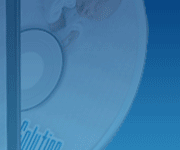The study suggests that by responding to a premature baby's hunger cues rather than a strict schedule, the premature baby could go home earlier than those kept on strict feeding schedules. Going home earlier translates to huge health care savings for families and their health insurers. With healthier babies making their way home sooner, there would me more room in the Neonatal Intensive Care Units for premature babies with serious health problems or that require surgery.
Realities of Feeding Babies in the NICU
As a parent of a premature baby, I am going to agree with the co-author of the study, William McGuire who states, "it might make be time to ease away from rigid schedules" found in hospitals.
My premature baby was fed on a strict schedule, and when that schedule was modified by my baby or by me, some of the nurses were not too happy. In one such instance, during my son's last week of his six-week hospitalization, it took a long time to breastfeed. He was still hungry after I left to go eat, and the nurse was not happy that "her" schedule was changed.
In the NICU, premature babies are checked on for temperature, weighing, regular diaper changes and visits by the doctor and nurses on staff. Because the babies are not visible to the NICU staff at all times, it would be impossible for them to respond to a baby's hunger cues. If there was one nurse for every premature baby, a camera monitoring system, or an available parent on site, on-demand feeding would be more reasonable.
Parents and the NICU Schedule
While in the NICU, I was one of the few parents that was able to spend eight to 10 hours a day with my son. Some parents came once a day, others only a couple of times a week. If the on-demand system of formatting is going to be considered as a way to expedite a premature's homecoming, more parental involvement would be required.






No comments:
Post a Comment